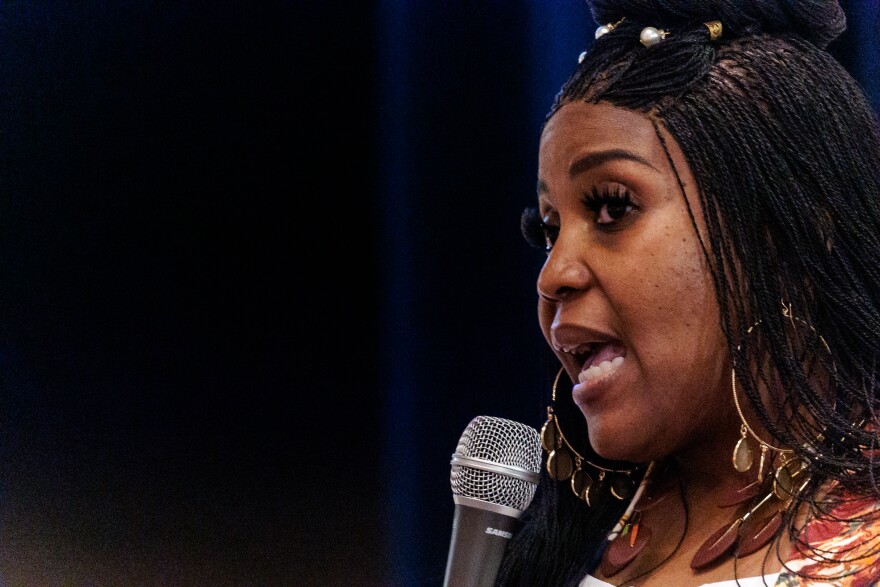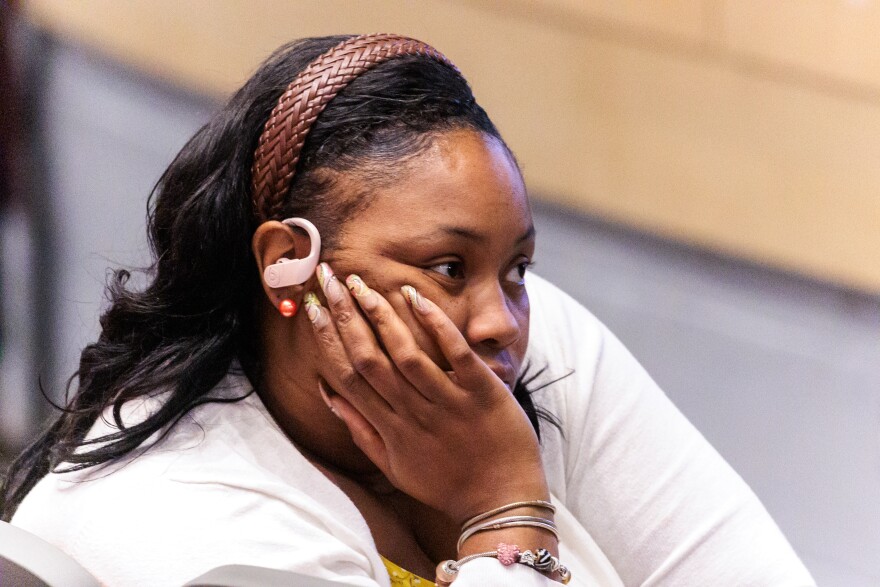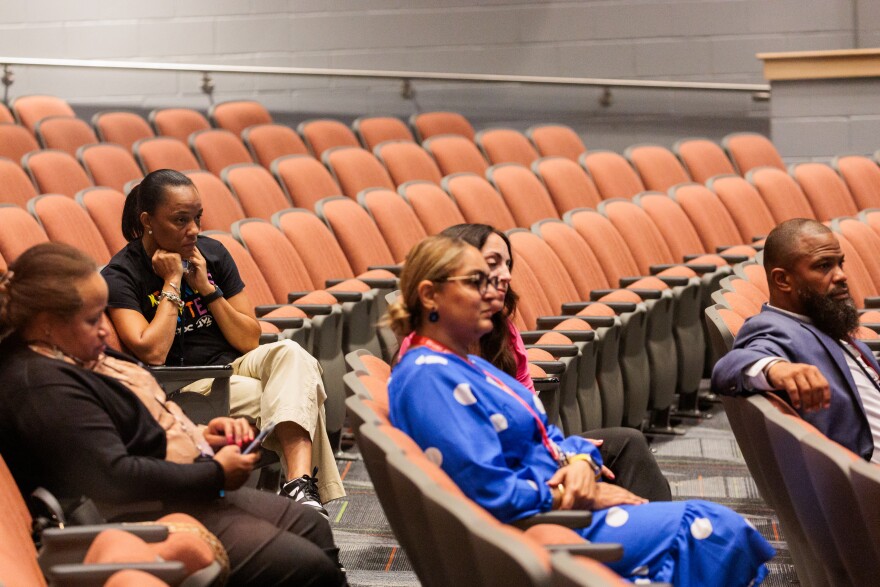Richmond Public Schools Chief Wellness Officer Renesha Parks arrived at River City Middle School Monday expecting to give parents and students the chance to weigh in on the district’s cellphone-free education plan.
But when few families showed up to participate, Parks turned the listening session into an opportunity to have a conversation with teachers and staff members.
The commonwealth’s school divisions have been tasked with implementing plans regarding cellphone use based on model guidelines set out by the Virginia Department of Education.
VDOE calls for “bell to bell” cellphone-free education, with phones turned off and stored away from the first bell through dismissal — including lunch and breaks between class periods.
Gov. Glenn Youngkin directed VDOE to craft the guidelines in a July executive order citing research that found children spend close to 5 hours a day on social media.
The order directs school divisions to have their plans in place by Jan. 1, 2025, which means that the RPS board has to vote on the final version of its policy before winter break.
Parks said the district is on track to fully implement cell phone-free education come January, though some schools have gotten a head start.
RPS started a pilot program in January 2024 at six schools where students placed their devices in magnetically sealed pouches at the beginning of the school day. Three of those schools — including River City — have continued the practice.

“One of the things that we know to be true is that there are some school leaders who have said, ‘I'm not going to wait until January,’ because we know that cellphones are very, very addictive,” Parks said.
She added that “if we try to wait until January to change our habits, we're going to be met with much resistance” — not just from students, but from staff.
The model guidelines leave it up to school divisions to decide how to discipline students who do not follow policy. RPS does not currently limit cellphone use during the school day in the Student Code of Responsible Ethics, a guide that defines appropriate and inappropriate behavior.
LaKeisha Williams, who teaches at River City, said if one of her students were to be caught with a phone, she would simply confiscate it and have the parents come pick it up.
“I can't be so lackadaisical, because we already have a plan in place,” Williams said.
Parks asked others to weigh in on whether the division should outline a tiered order of response for when a student is found with a phone they shouldn’t have.

Many staff members said engaging in a conversation with the student would be an appropriate first response before confiscating the device.
An RPS speech pathologist suggested the district make bilingual visuals with whatever cellphone-related disciplinary actions are adopted.
“Make it really simple: step one, step two, step three,” she said. “Putting that responsibility on them — rather than ‘I am telling you what not to do,’ telling them ‘you tell me where you want this to go.’”
Most RPS staff in attendance agreed that the policy should give students a break during bus rides with some considerations, such as keeping volume levels reduced. One teacher was concerned about bus drivers having to manage cellphone restrictions while keeping their eyes on the road.
Other concerns from staff included ensuring that teachers are not held accountable for devices damaged or lost as a result of following the policy and considering whether to curtail usage of certain functions on school-issued Chromebooks.
Williams shared that a student at River City used a Chromebook in lieu of their phone to record a fight in the bathroom.
Parks told VPM News the conversation gives her team a lot to think about as they finish crafting the policy to present to the school board.
“I think having a tiered approach for when students don't follow what the expectations are, is where we're headed to, knowing that we're also making sure that students understand the consequences of those actions,” Parks said.
She also stressed the importance of communicating the expectations to parents.
The division is holding a virtual listening session Oct. 9 from 6–7 p.m.; Parks said she plans to invite technology services.
“We need to consider what happens with the Chromebooks and should we put stricter standards in place,” she said, “particularly given that someone shared that their child had a Chromebook in the bathroom with the camera recording a fight.”




